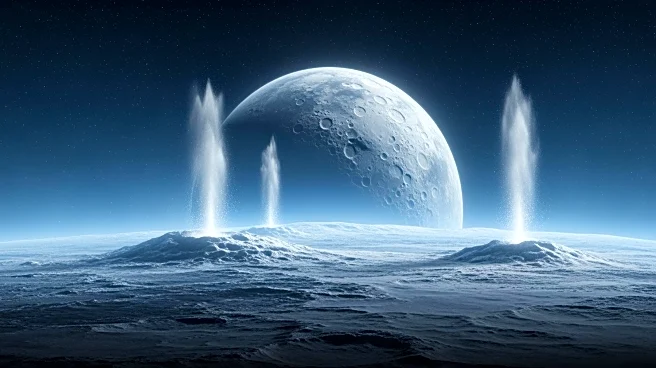What's Happening?
A new study published in the Science Advances journal suggests that Saturn's moon Enceladus may have conditions suitable for supporting life. Data from NASA's Cassini mission indicates that heat is flowing
from both the north and south poles of Enceladus, suggesting the presence of a subsurface ocean. This ocean, along with the presence of water, heat, and chemicals, makes Enceladus one of the most promising places for life beyond Earth.
Why It's Important?
The potential habitability of Enceladus is significant for the search for extraterrestrial life. Understanding the conditions on Enceladus can provide insights into the potential for life elsewhere in the solar system. The study highlights the importance of continued exploration and research on celestial bodies that may harbor life-supporting environments.
What's Next?
Further research is needed to determine the age and stability of Enceladus's subsurface ocean. Scientists will continue to study the moon's environment to assess its potential for supporting life. These findings could inform future missions and exploration efforts aimed at uncovering signs of life beyond Earth.








